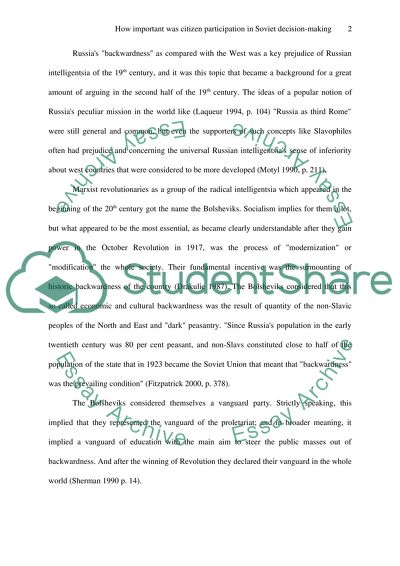Cite this document
(“How important was citizen participation in Soviet decision-making Essay”, n.d.)
How important was citizen participation in Soviet decision-making Essay. Retrieved from https://studentshare.org/miscellaneous/1518136-how-important-was-citizen-participation-in-soviet-decision-making
How important was citizen participation in Soviet decision-making Essay. Retrieved from https://studentshare.org/miscellaneous/1518136-how-important-was-citizen-participation-in-soviet-decision-making
(How Important Was Citizen Participation in Soviet Decision-Making Essay)
How Important Was Citizen Participation in Soviet Decision-Making Essay. https://studentshare.org/miscellaneous/1518136-how-important-was-citizen-participation-in-soviet-decision-making.
How Important Was Citizen Participation in Soviet Decision-Making Essay. https://studentshare.org/miscellaneous/1518136-how-important-was-citizen-participation-in-soviet-decision-making.
“How Important Was Citizen Participation in Soviet Decision-Making Essay”, n.d. https://studentshare.org/miscellaneous/1518136-how-important-was-citizen-participation-in-soviet-decision-making.


